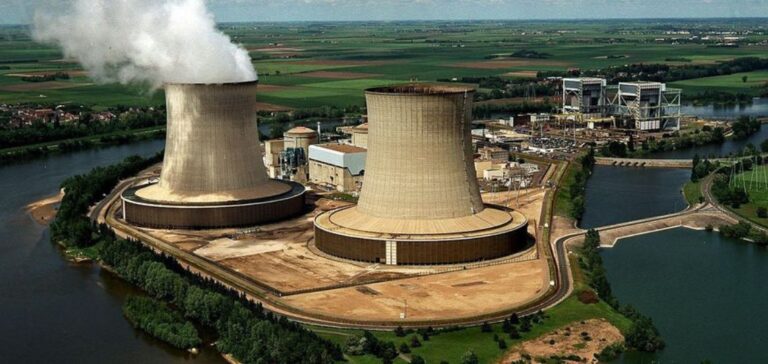French Prime Minister Elisabeth Borne told an Assembly inquiry committee that the government has decided to accelerate the revival of nuclear power to meet growing electricity needs and to achieve its ambitious greenhouse gas emission reduction targets. She explained that France had a more ambitious vision of reducing greenhouse gas emissions, which justified this decision.
The Assembly’s commission of inquiry is seeking to establish the reasons for France’s loss of sovereignty and energy independence. It is due to report at the end of March and is seeking, among other things, to understand how France ended up with an electricity shortage and had to import electricity from abroad this winter.
The reasons for the revival of nuclear power in France
The decision to revive nuclear power in France was taken because of calculations by RTE (Réseau de transport d’électricité), showing that a 100% renewable scenario was not sustainable from an economic and security of supply point of view. The French government has therefore announced the launch of six new EPR nuclear reactors and is requesting a study on how to extend its existing nuclear reactors beyond 50 years.
The Prime Minister also pointed out that the scenarios produced by RTE in 2014 predicted a stable or declining trend in electricity consumption, which led to the reduction of the share of nuclear power in France and the closure of some reactors, including Fessenheim in Alsace. Since then, France has completely reassessed these scenarios.
The costs of reviving nuclear power in France
The revival of nuclear power should cost at least 51 billion euros for the first six new reactors and about the same amount for the extension beyond 40 years of the existing reactors that can, excluding waste management. RTE presented six scenarios ranging from 100% renewable in 2050 to a voluntary development of nuclear power, presented as the cheapest way, in the order of 10 to 20 billion euros less per year.
The revival of nuclear power in France aims to meet the growing need for electricity, while reducing greenhouse gas emissions. The government made this decision based on calculations showing that a 100% renewable scenario was not sustainable from an economic and security of supply point of view. However, the revival of nuclear power involves high costs, which raises questions about the long-term financial viability of this project.






















